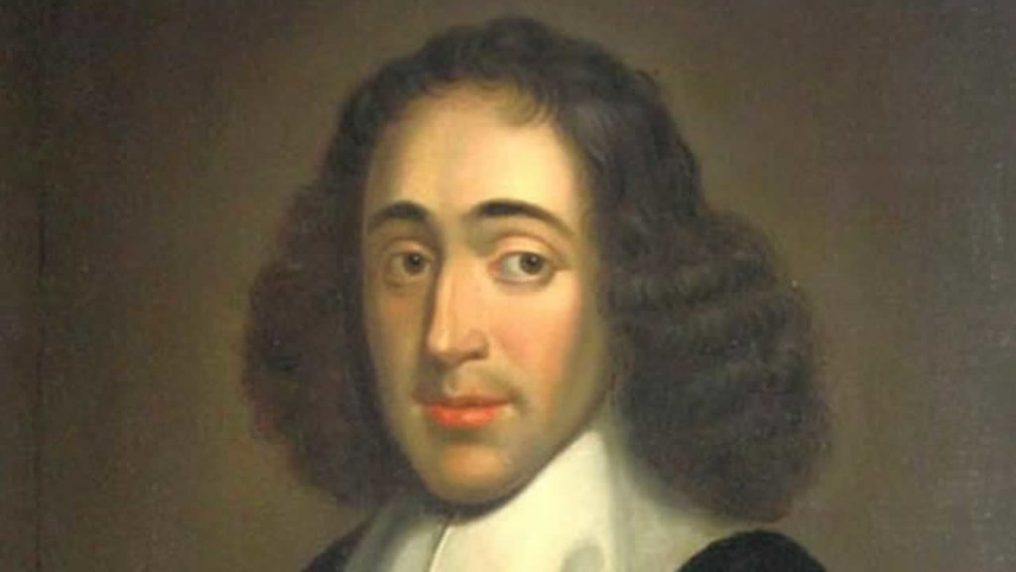REVIEW
Five Reasons To Believe In God
In a previous blog, we said that using natural theology’s five arguments for the existence of God we could provide five excellent reasons to believe in God:
1. God is the best explanation for the existence of objective moral values and duties in the world.
2. God is the best explanation for the beginning of the universe.
3. God is the best explanation for why the universe is so finely-tuned to sustain life.
4. God is the best explanation why anything at all exists rather than nothing.
5. The very possibility that God exists indicates to us that he actually does exist.
In presenting these arguments, Christians bore the burden of proof or evidence.
Four Objections Answered
We’ve also responded to some of atheism’s primary objections:
1. Suffering: If a loving and powerful God exists, why is there suffering?
2. Origin: Is the question of God’s origin an effective argument against his existence?
3. Hiddenness: If God exists, why doesn’t he make it more obvious and end unbelief in the world?
4. Exclusivity: How can you legitimately claim that Jesus is the only way to God?
In each of these objections, atheists must bear the burden of proof because these are their reasons for saying that God does not exist. Now we will address a fifth objection that is commonly raised: the alleged impossibility of miracles.
INTRODUCTION
One of the most significant obstacles for some people to overcome is the fact that Christianity is a religion of miracles. The book of Genesis suggests that the universe was created out of nothing by a supernatural act of God. The New Testament of the Bible says that God superintended a virgin birth and took on human form as Jesus of Nazareth. It says that he healed many people of serious illnesses and disabilities, exorcised demons, changed water into wine, walked on water and rose from the dead.
The idea of miracles and the supernatural are a little hard to swallow for some people. Why is that? The Enlightenment or Age of Reason, which some would say began as early as the 1600s with the scientific revolution, caused a reexamination of views that had been held for centuries. The fields of philosophy and theology were radically altered as well. One subject that drew considerable interest was the idea of miracles and how they should be viewed in this new Age of Reason.
What was a “miracle”? Did they ever really occur, or was there a natural explanation for them? Regarding the Bible, did a creation out of nothing really happen? Did the miracles of Jesus actually occur? Was there a virgin birth? Did Jesus rise from the dead?
In this blog, we want to present the thinking of the very best minds in history on this subject of miracles, those for and against. For the purpose of this blog, we will say that a miracle is “a rare act of God that interrupts the normal course of events.”
In trying to identify a miracle, we would say that it’s crucial to understand such phenomena in light of their religious and historical context. Miracles cannot be understood without the complete background information that tells us why such things might occur.
OUR BACKGROUND INFORMATION SHOULD INCLUDE THE IDEA THAT GOD EXISTS
Do you remember how we said in one blog that a probability is entirely dependent on its “background information”? On this website, we presented five excellent arguments for the existence of God without using scripture. Based on this evidence, we think it’s easily more probable that God exists than the probability that he does not. This fact alone should significantly increase the likelihood of genuine miracles — rare acts of God that interrupt the normal course of events.
However, at this time we’re going to discuss the thoughts of some of the greatest minds in history, who unfortunately did not have available to them all of the scientific understanding that we have today.
Much of the information in our five arguments for the existence of God is based on scientific discovery that has occurred in the last 100 years, and even in the last 40 years. So the background information of people like Benedict Spinoza and David Hume was more limited in scope than ours, and the possibility of a miracle would seem much more remote to them.
Despite this, people like Benedict Spinoza and David Hume continue to have a pervasive influence on the thinking in universities and among intelligentsia throughout the modern world. The influence of the Enlightenment continues to be felt in all aspects of our lives.
DEISM’S ANTI-MIRACLE VIEW
Over the past few centuries, a movement that has probably had the most influence on this subject of miracles is Deism. Deists have always accepted the existence of God and his general revelation in nature, but they adamantly reject the idea that he intervenes to sustain his creation or to reveal his mind and will to man in a form that should be codified as scripture. Therefore, miracles would be impossible.
Deism had a powerful influence on European and American culture during the Enlightenment in the 1600s and 1700s. Throughout that time, Deists were constantly attempting to disprove miracles.
THE BURDEN OF PROOF FOR EVIDENCE OF MIRACLES
Benedict Spinoza and David Hume, the two most powerful voices in opposition to the idea of miracles, both stated that, in order to prove the existence of God and miracles, one would have to offer what Hume called a “full proof” or what this website has frequently referred to as “100% certainty.” In other words, not a probability but absolute proof.
This an arbitrarily stringent standard of evidence that is not adhered to by academicians today. In any discussion about God’s existence or miracles, I simply need to demonstrate that my theory is more probable than your theory. It would be impossible for an atheist to offer 100% proof that God does not exist and that there are no miracles. It would be equally impossible for a Christian to provide 100% proof that God does exist and that miracles really do happen. Hume’s idea of a “full proof” is unattainable by either side.
Today, it is understood in academic circles that we simply want to ascertain which theory is more probable.

SPINOZA’S ANTI-MIRACLE VIEW
1. Spinoza: “The Laws of Nature are Immutable”
In 1670, Jewish pantheistic philosopher Benedict Spinoza of Amsterdam first popularized the argument that the laws of nature are immutable. “Pantheism” refers to the idea that God and nature are the same.
Spinoza said that God wills the laws of nature to be, that they flow from the necessity and perfection of God’s or nature’s divine plan. Miracles do not exist. If a miracle really existed, it would be acting contrary to those laws of nature that were divinely appointed by God in the first place. According to Spinoza, God or nature does not contradict himself in this manner. Therefore, miracles are impossible.
Regarding Spinoza’s point about the immutability of the laws of nature, you could express his view in a syllogism:
1. Miracles are violations of natural laws.
2. Natural laws are immutable.
3. It is impossible to violate immutable laws.
Conclusion: Therefore, miracles are impossible.
Response to Spinoza: Are Natural Laws Really Immutable?
Of course, Spinoza’s entire argument is based on the assumption that there is no theistic God and that nature is actually God. Premise 2 commits a logical fallacy known as “begging the question.” This premise begs the question, “On what basis did you conclude that natural laws are immutable?” The conclusion that miracles are impossible was simply baked into the premise itself as a presupposition. Premise 2 is not true.
Secondly, natural law is a description, but it doesn’t cause anything. It does not proscribe or restrict what can occur. Nature is not the same thing as God. Natural law simply describes the effects of the four natural forces in the universe that we talked about in our blogs on the fine-tuning of the universe: gravity, magnetism, the strong nuclear force and the weak nuclear force.
Perhaps in Spinoza’s pantheistic worldview he thought he could rule out a personal theistic God and thus miracles as a presupposition. But if a personal Creator God really does exist as our five arguments indicate, then miracles really are possible.
Today, Spinoza’s argument about the immutable laws of nature is not as popular among philosophers and theologians as it was in his time.
2. Spinoza: “Miracles are Insufficient to Prove God’s Existence”
It was Benedict Spinoza’s opinion that it was the regular and unchangeable order of nature that proved God’s existence (i.e., pantheism), not miracles which would contradict such an unchangeable order and thus undermine the idea of God’s existence (i.e., not a personal God who intervenes to sustain his creation).
Even if someone thought they had witnessed a miracle, Spinoza said it would most likely be just an aspect of the regular course of nature that we had not yet discovered.
Our Response to Spinoza on “Using Miracles to Prove God’s Existence”
This second point by Spinoza was directed at Christians. However, Christian theologians did not use miracles as a proof of God’s existence. For example, the Christian theologian Samuel Clarke pointed to other evidence such as the ontological and cosmological arguments for God’s existence. Miracles were used to prove the Christian God’s action in the world, not his existence. So Spinoza was actually raising a straw man argument.
Additionally, Christian theologians Samuel Clarke and William Paley argued that a miracle did not necessarily overthrow nature’s regularity. They said that, at most, it illustrates God’s intervention at one particular point. A natural law is not abandoned because of one exception. Spinoza’s fear that miracles would destroy the fabric of natural law was unwarranted.
Christian theologians said that any miracle could not reasonably be separated from its religious and historical context since that context was the key to interpret the miracle. Jesus’ resurrection came as the climax to his own life and teaching that he was the Son of God. That context indicates a supernatural event.
Spinoza said that a proof for God had to provide 100% certainty. Christian philosophers correctly disagreed. Evidence for God simply needed to meet the normal evidential requirement that it was more likely than its negation (i.e., It’s more likely that God exists than it is that he does not).
This argument by Spinoza eventually fell into disfavor as well.
CHRISTIANS THEOLOGIANS’ RESPONSES TO SPINOZA
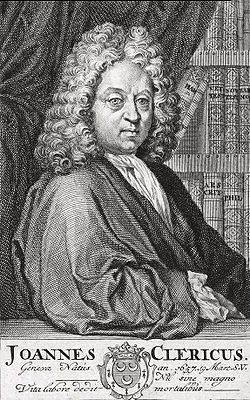
Jean Le Clerc
In 1685, French theologian Jean Le Clerc said that the empirical evidence for miracles was more convincing than Spinoza’s a priori philosophical presupposition that there are no miracles.
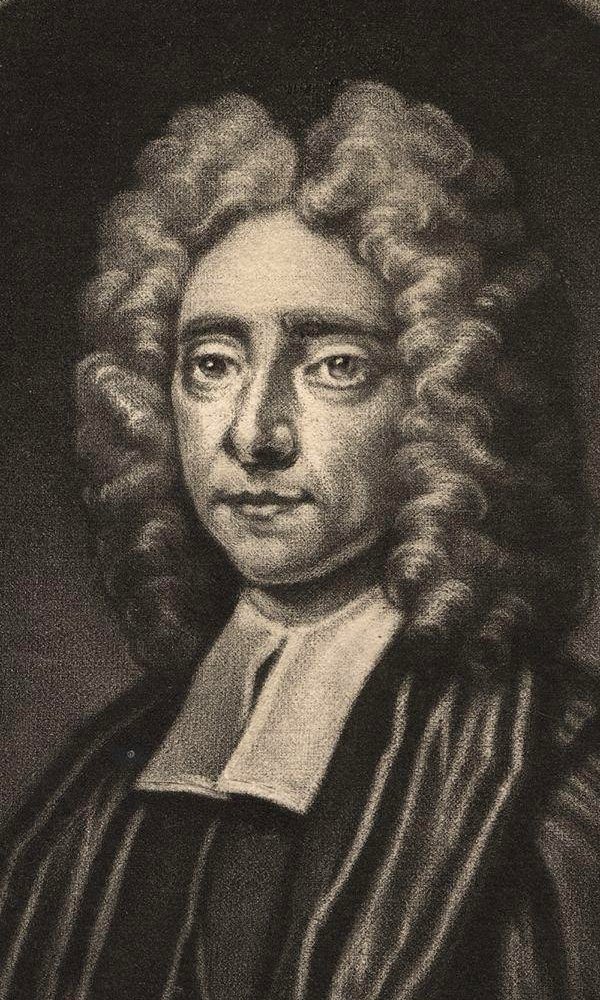
Samuel Clarke
In 1705, English theologian Samuel Clarke gave the Boyle lectures in which he said nothing happens unless God acts to make it so. Even the forces of nature such as gravity represent constant, unremitting actions by God. Clarke said the so-called “unchangeable course of nature” was a fiction.
What is perceived to be the regular course of nature would never occur without the constant sustaining action of God producing effects in a continual and uniform manner.
God is very active in sustaining and preserving his creation. He is always the person behind the curtain making things run. So a “miracle” would just be God taking a different action that he chooses.
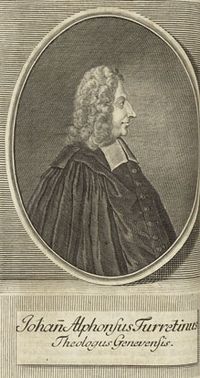
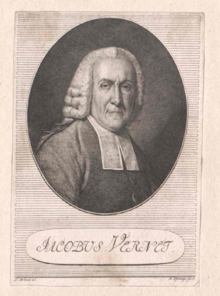
Jean Turretin and Jacob Vernet
In 1730 to 1788, French theologians Jean Turretin and Jacob Vernet teamed up to write a response to French Deism based on Christian evidences.
Vernet did not deny the course of nature like Clarke did, but Vernet said it is only the constant and uniform procession of events that we observe that leads us to think the course of nature cannot vary.
Remember how Spinoza said that a supposed “miracle” could just be a work of nature that is yet undiscovered by man? Vernet said this might explain away one miracle, but it cannot explain a series of miracles of different kinds.
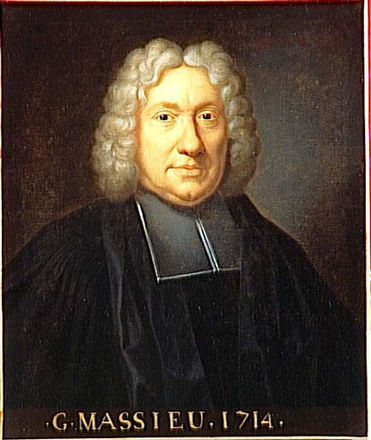
Claude Houtteville
In 1740, French theologian Claude Francois Houtteville began with the background knowledge that we already have evidence of God’s existence, and for the readers of this website who have read the five arguments for God that is true. Given the existence of God and that he created the universe, Houtteville says it is readily apparent that he could produce a miracle.
In response to Spinoza’s idea that the laws of nature represent God’s immutable will, Houteville said that God can replace, countermand or make exceptions to the natural law that he created anytime he wants to. The laws of nature do not exist necessarily. God could have created an entirely different set of laws if he wanted to.
CONCLUSION
Remember that people like Samuel Clarke and William Paley provided sophisticated arguments for the existence of God that did not rely on miracles: the teleological argument, the ontological argument, the cosmological argument.
Once it was established that God exists, the Christian theologians said that miracles are possible. This was because of God’s omnipotence according to Clarke. It was because of God’s conservation of the world according to Houtteville. It was because of his sovereign freedom to act as he wills according to Less.
C.S. Lewis, an adult convert to Christianity, stated:
“If we admit God, must we admit Miracle? Indeed, indeed, you have no security against it. That is the bargain.”
C.S. Lews, Miracles (New York, McMillan, 1947), 106.
Against Spinoza’s first objection about the immutability of nature, the Christian theologians responded that miracles do not contradict God’s nature because the laws of nature do not exist necessarily and thus God is free to change them at any time. Spinoza thought that the admission of a genuine miracle would overthrow the natural law that had been violated by that miracle. However, miracles, if they are properly defined, do not violate natural laws and so do not cast doubt on the law itself. Clarke and Paley argued that a miracle does not necessarily overthrow nature’s regularity, but it does expose God’s intervention. Spinoza’s fear that miracles would destroy natural law was not justified. Exceptions to natural law help us to recognize the actions of God.
Against Spinoza’s second objection that “miracles are insufficient to prove God’s existence,” Christian theologians did not use miracles as a proof of God’s existence. Miracles were used to prove the Christian God’s action in the world. So Spinoza was actually raising a straw man argument. Christian theologians said that any miracle could not reasonably be separated from its doctrinal context since that context was the key to interpret the miracle. Jesus’ resurrection came as the climax to his own life and teaching that he was the Son of God. That context indicates a supernatural event. Spinoza said that a proof for God had to provide 100% certainty. Christian philosophers disagreed. Evidence for God simply needed to meet the normal evidential requirement that it is more likely than its negation (i.e., It’s more likely that God exists than it is that he does not).
Regarding Spinoza’s idea that an alleged miracle might actually arise from an unknown law of nature that we are not yet aware of, Le Clerc said we still have to explain how such a thing occurred at the moment of Jesus’ command. Vernet said that attributing miracles to an unknown law of nature might work for one miracle, but when there are many miracles of different kinds this explanation fails.
Today, Spinoza’s arguments concerning miracles have been abandoned by most philosophers and theologians.

